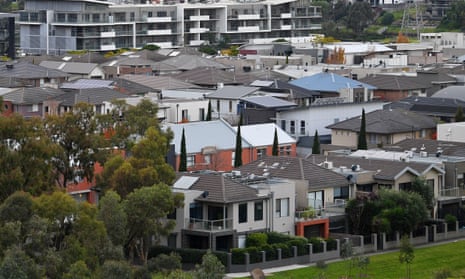Global house prices grew at the fastest rate since 2006 at the start of 2021, with Australia and New Zealand among the countries recording the largest increases.
New figures released by Knight Frank in their global house price index show for the first quarter of 2021, global housing prices increased by an average of 7.3% across 53 countries.
Australia was 18th in terms of annual increases at 8.3% and seventh-highest over the quarter at 4.9%.
Thirteen countries recorded double-digit growth over the year, with Turkey highest at 32% in twelve months and for the fifth consecutive quarter, followed by New Zealand at 22.1% and the United States in fifth at 13.3%.
Over the last quarter, Lithuania led the pack with a 9.1% increase, while New Zealand was fifth with a 5.3% rise.
Housing and public policy expert Prof Alan Morris said the crucial reason for the rise was very low interest rates.
“This is obviously inspiring people to purchase property and people who have property already inspiring them to purchase investment properties,” Morris said.
“During the pandemic, because people haven’t been able to travel, people who have got money saved were able to use it to help their kids enter the market or for them to upscale,” he said.
“The other crucial reason is that, in most countries in the world, social housing has been put on the back burner and countries have abandoned building social housing.”
New Zealand, like Australia, has record low interest rates, currently at 0.25% and has also been experiencing a housing bubble. In recent months measures to lower prices, including income caps for grants and loans being lifted for first home buyers, have been implemented.
The Ardern government has also closed loopholes, similar to negative gearing laws, that allowed property investors to offset their interest expenses against their rental income when calculating tax, in hopes to make housing more affordable.
The Morrison government also announced affordable housing policies in the 2021-22 budget in the form of the First Home Loan Deposit Scheme, allowing first home buyers a 5% deposit and singles a 2% deposit.
Morris said more needs to be done by the Australian government in comparison to New Zealand. “At least they are endeavouring to try and stem the enormous increase by trying to limit speculation within the housing market.”
Attempts by Labor at the 2019 election to dampen property speculation by limiting negative gearing for investors and increasing capital gains tax proved unpopular and are unlikely to be taken to the next election.
Knight Frank also expects that “the threat of new variants and stop/start vaccine roll-outs have the potential to exert further downward pressure on price growth.”
While a majority of countries’ housing prices rose, a few decreased, Spain by 1.8% and India by 1.6%, due to “stringent lockdowns, economic concerns or excess supply.”
